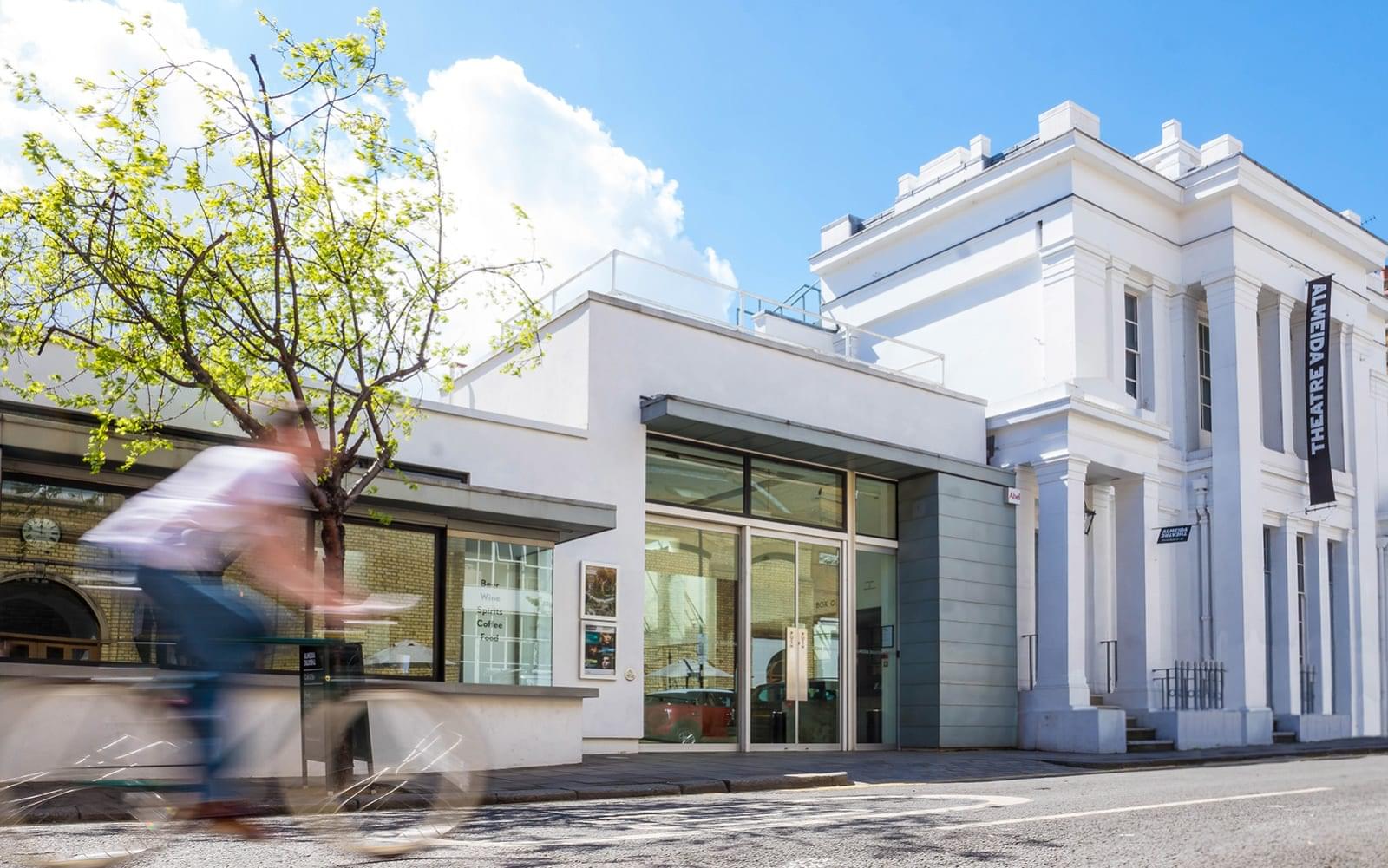When I first read the script for Once Upon A Time In Nazi Occupied Tunisia, the theme that resonated with me most was home.
The play prompted me to question: is home where we were raised? Is it the land where our ancestors spent most of their time? Or do we create home—is it something that can shift as easily as a piece of clothing, changing as and when needed?
I was born and raised in Australia, to parents who were Iranian refugees, and I migrated to the UK in 2013. So, I know that defining home isn’t always the easiest thing to do!
During rehearsals, we had a number of conversations around what home means to us. If we’re talking about places we were born, our company stretches from Leeds to Sydney; but if we’re talking about our ancestry, we’ve got roots in the Middle East and North Africa and all the way through various parts of Europe. Many of us have experienced the delightfully complex question, “Where are you from?” as well as the more frustrating, “But you don’t look [insert ethnicity here].”
Taking these questions into our exploration of two Tunisian couples—Loys and Victor, who are Jewish, and Faiza and Youssef, who are Muslim—has been an enlightening experience. I believe we can only ever view a play and its characters through the lens of our own upbringing and experience. So whenever I watched these two couples, I couldn’t help but think of my own heritage as an Iranian woman. In Iran, as with many Middle Eastern countries, we have a great diversity within our people. We have a variety of skin tones, practice various faiths, and speak a number of languages and dialects. Our diversity can come as a surprise to outside eyes, who may otherwise have assumed we all looked and sounded a particular way.
Sadly, as is too often the case around the world, diversity doesn’t always mean harmony. Religious and ethnic persecution is rife in Iran—for example, the country’s Bahá’í community have long been discriminated against, unable to study, work and contribute to society because of their faith. As a result, much of that community has fled Iran and made a home elsewhere. It’s through this angle that I found a strong connection to the character of Loys. There’s quite a few moments where she speaks about home in a way that seems outwardly simple, yet harbours a lot of deeper, more complicated meaning that yearns to be unpacked. For instance, this exchange between her and Faiza in Act 1:
Loys: I’m just not sure Tunisia is for me.
Faiza: You’re Tunisian.

During rehearsals, one word kept popping back into my mind: cycles. The play, to me, highlights the cyclical nature of how humans have defined and redefined home over the years: through conquest, capture and colonisation. This is painfully summarised by Loys’ remark in Act 2:
“You can live somewhere hundreds of years and it still isn’t your home.”
The ripple effects of the moment in time that the play brings to life is devastating. We see the trauma that Victor has endured in the Nazi camp, and the way this has driven him to the extreme of wanting to go ‘home’ to Palestine – recalling Zionist thinking he once thought only ‘simpletons’ would adhere to. Then we look at the horror of what is happening in Palestine today; yet another cycle of displacement and discrimination, where innocent civilians are being forced out of the only home they’ve ever known.
The question then becomes: how do we break these cycles? While this play certainly doesn’t claim to have answers, I’m glad that it poses such questions. There can be fear attached to talking about the conflicts that rage on today: fear of getting it wrong, of saying the wrong thing, of causing offence. But perhaps through trying to have those conversations around our differences – around what home means, how we define it and who it belongs to – we can at least learn something new about one another, and push back against cycles of discrimination and misinformation. Home can never be simply tied to how we look or sound, or what we believe in. But I hope that audiences watching Once Upon A Time In Nazi Occupied Tunisia leave thinking about how their own homes have been enriched when people from all walks of life have been welcomed inside.
Sepy Baghaei trained at the Royal Central School of Speech and Drama and the Australian Academy of Dramatic Art. She is Associate Director at The Space Theatre and Co-Vice Chair of MENA Arts UK.

